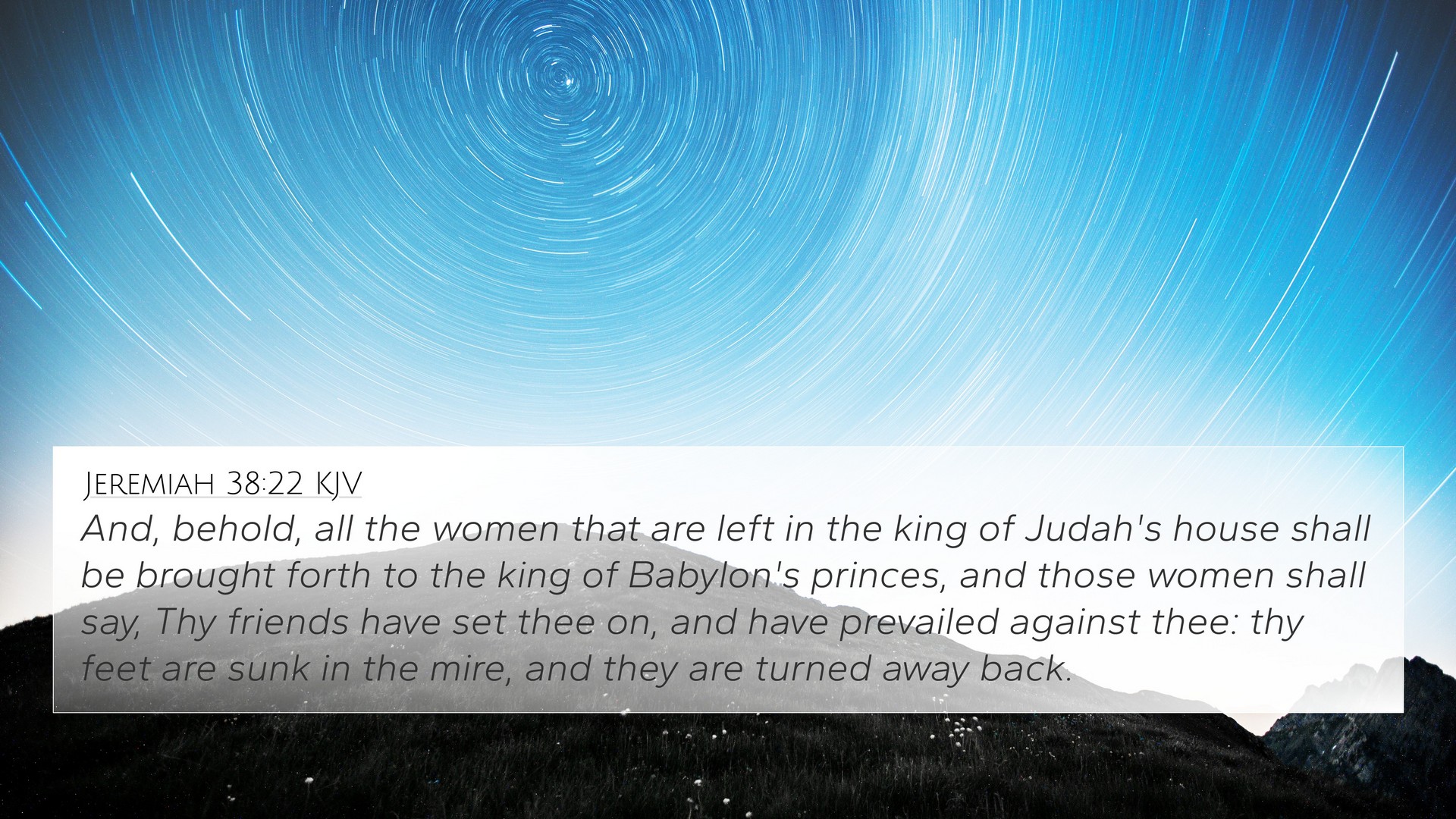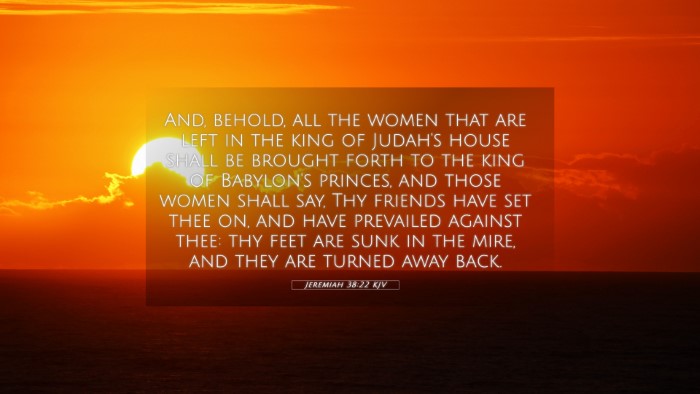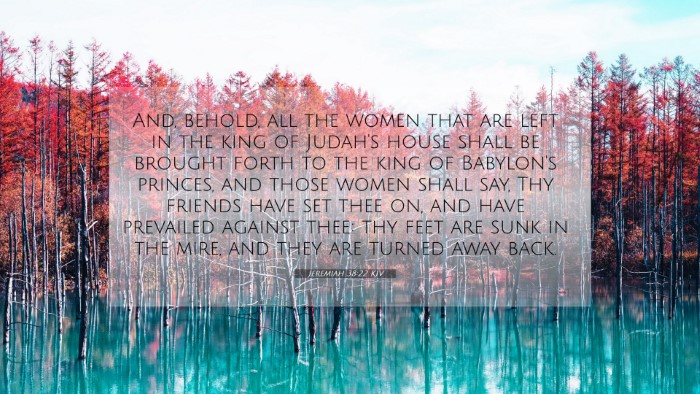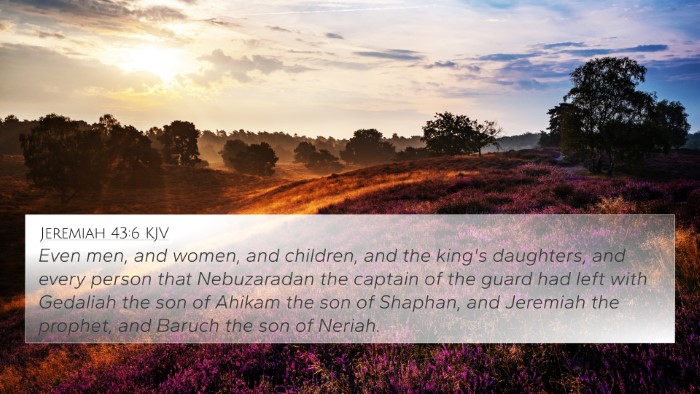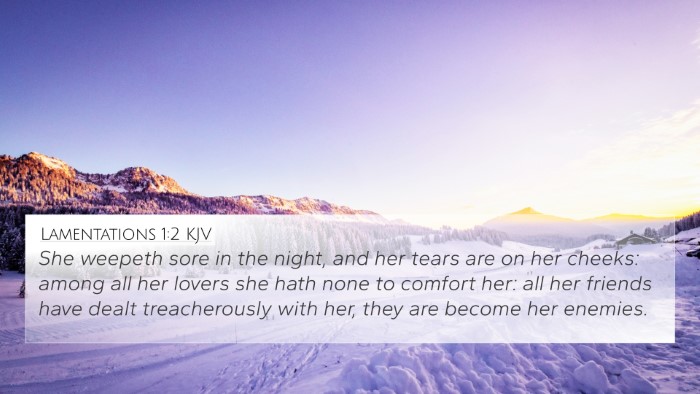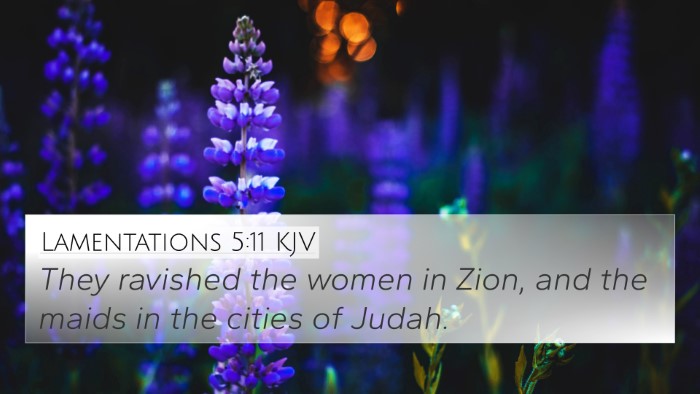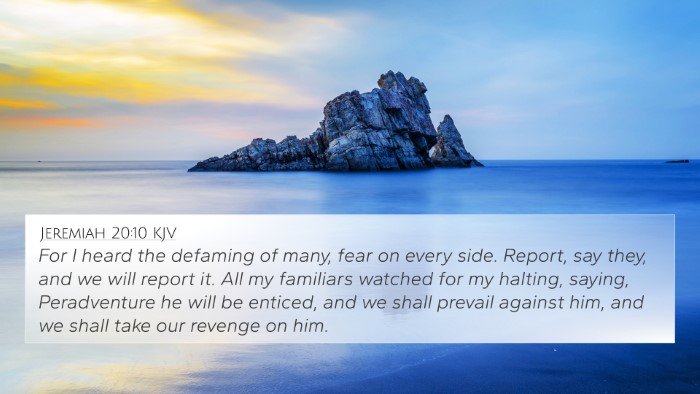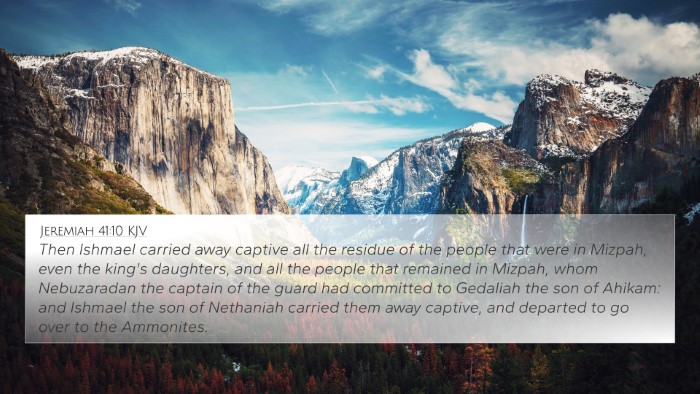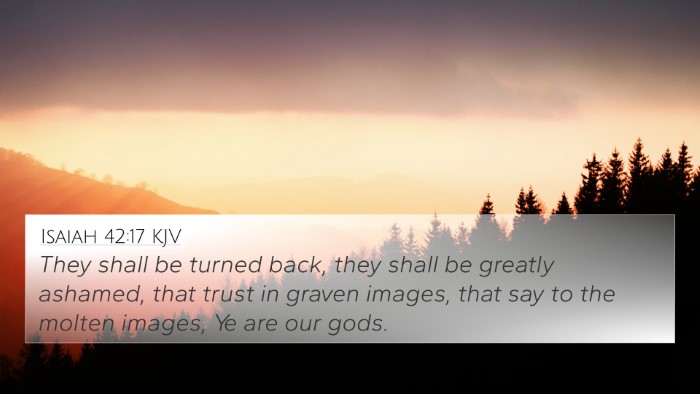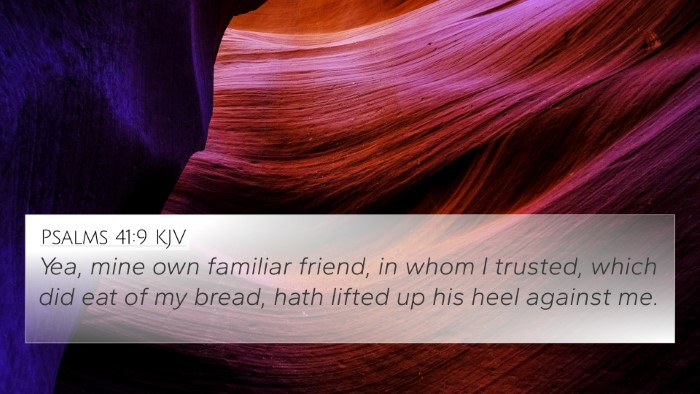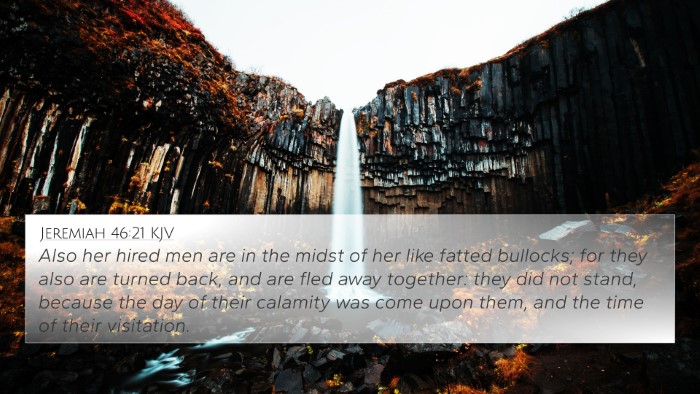Understanding Jeremiah 38:22
Jeremiah 38:22 states, "And, behold, all the women that are left in the king of Judah's house shall be brought forth to the king of Babylon's princes, and those women shall say, 'Thy friends have set thee on, and have prevailed against thee: thy feet are sunk in the mire, and they are turned away back.'"
This verse highlights the dire consequences of the siege of Jerusalem and the betrayal that occurred among the ranks of leadership during that tumultuous time. It speaks to the fate that awaits the women of the royal household, who now become part of the narrative of suffering and loss amidst the impending Babylonian conquest.
Interpretative Insights
Drawing from Matthew Henry, Albert Barnes, and Adam Clarke's commentaries, we find a rich tapestry of interpretations regarding the implications of this verse.
Contextual Background
The Book of Jeremiah is filled with themes of judgment, warning, and the consequences of disobedience. This particular verse sheds light on the personal and communal tragedy faced by the people of Judah, as they find themselves abandoned by allies and overtaken by enemy forces.
Thematic Analysis
-
Judgment and Consequences:
The prediction of the women’s fate serves as a reminder that God's judgment was not limited to the elite but would impact all levels of society. Barnes highlights how these events are the fulfillment of prophecy regarding Jerusalem's destruction.
-
Betrayal:
The reference to "friends" betraying them indicates the loss of trust within the society. Clarke notes this as a significant emotional and social breakdown among the people.
-
Symbolism of Despair:
The "mire" mentioned in the verse can be understood symbolically, representing a state of hopelessness. Henry discusses how this mire signifies how deeply the people of Judah have sunk in their sin and consequently, in their fate.
-
Foreshadowing of Exile:
This verse also foreshadows the captivity that will ensue post-Babylon’s siege. The women’s lament signifies the loss not just of their kin but of the nation’s identity. The themes of loss and exile resonate through many prophetic texts.
Cross-References and Connections
This verse relates intricately to several other Biblical passages, showcasing an intertwining of prophetic messages and historical accounts. Here are some notable cross-references:
- 2 Kings 25:4-7: Describes the fall of Jerusalem and the consequences faced by the inhabitants.
- Ezekiel 12:13: Discusses the fate of King Zedekiah, aligning with the themes of downfall and captivity.
- Isaiah 39:6-7: A prophecy that predicts the Babylonian conquest, linking back to Jeremiah’s warnings.
- Lamentations 1:1-2: A heartfelt expression of the suffering in Jerusalem, connecting emotional loss with physical captivity.
- Zechariah 1:12: Indicates God's promises amidst judgment, presenting a future hope despite current despair.
- Matthew 27:25: The continuation of the theme of judgement upon Jerusalem seen in the New Testament.
- Romans 11:25-26: Discusses the eventual salvation and restoration of Israel, concluding the narrative of loss with hope.
Conclusion
Jeremiah 38:22 serves as a poignant reminder of the consequences of disobedience and the violation of trust. The inter-Biblical dialogue, as seen in its links to various prophetic and historical texts, underscores the themes of judgment, betrayal, and hope for restoration. To fully grasp the intricate connections between these verses, readers are encouraged to explore tools and techniques for cross-referencing, thereby enriching their understanding of Scripture and its comprehensive message.
Further Study and Tools
Those interested in enhancing their study of Scripture through comparative Bible verse analysis may consider utilizing a Bible concordance or a Bible cross-reference guide. These tools facilitate an exploration of Bible verses that relate to each other, enabling deeper insights into inter-Biblical dialogue and thematic connections across both the Old and New Testaments.
